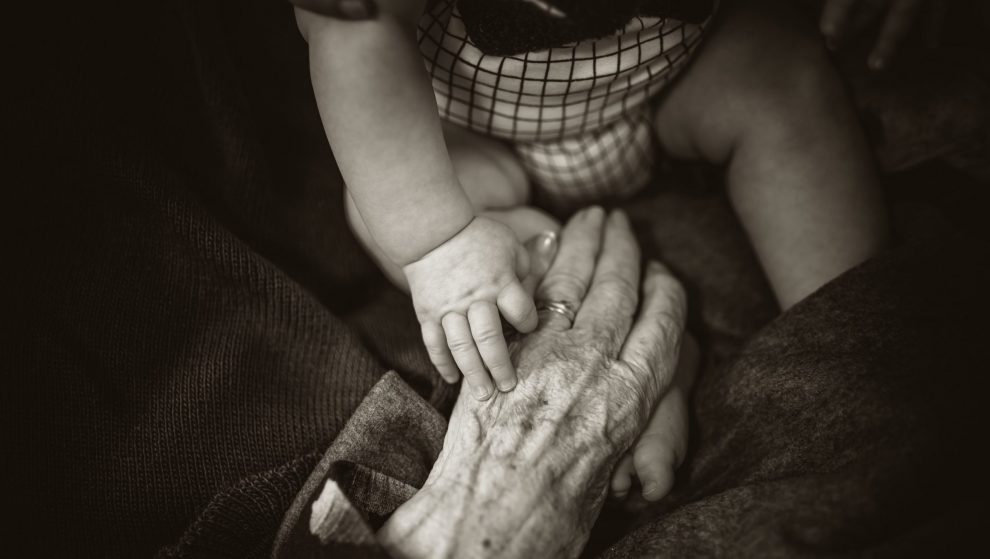Before we talk about what the consistent ethic of life is, maybe we should start by talking about what the consistent ethic of life is not. We might get a little farther that way.
The “seamless garment” (Jn 19:23) has always been an appealing image. As a metaphor, however, this common way people talk about the consistent ethic is problematic. The image of the garment is tempting, because it helps to make the consistent ethic seem more concrete.
But this is a problem: Thinking concretely tends to focus our attention on objects and, in this particular case, on issues. The consistent ethic is not about issues. The consistent ethic is not about abortion, euthanasia, nuclear war, poverty, education, capital punishment. Reducing the consistent ethic to a piece of whole cloth conjures the same picture that its critics forever invoke against it—a sort of level playing field where all of these issues, all of the various threats to human life, seem seamlessly the same.
The consistent ethic of life is not a “seamless garment” in this sense. The consistent ethic is not (and, never was) an argument for seeing particular issues as equivalent.
The consistent ethic is a framework to guide our analysis of political questions in the light of our deepest moral commitments. The consistent ethic is a way of thinking about these questions in the light of those deep commitments of faith. And, the consistent ethic has a practical dimension too.
“The credibility of our advocacy of every unborn child’s right to life will be enhanced by a consistent concern for the plight of the homeless, the hungry and helpless in our nation, as well as the poor of the world,” says Cardinal Joseph Bernardin in his book A Moral Vision for America (Georgetown University Press, 1998). The more consistently Catholics appear to be committed to life without having any preferential focus on one issue, outcome, or party, the more persuasive we are apt to be when we bear witness to the primacy of human life in social and political spaces.
Drawing our moral concerns together in a consistent framework helps us to see their connectedness, a connectedness that springs naturally from Catholic social teaching, which always expresses together both our regard for human persons and the Christian belief that the social order exists first and most to promote the common good.
What is that framework, itself? The complexity of that question, I think, explains why the consistent ethic has failed to catch on.
Introducing the consistent ethic in 1983, Cardinal Bernardin described it as an “attitude or an atmosphere” in society that prizes human life in every situation first and foremost. The consistent ethic is a perspective that respects life and never cheapens or dismisses the priority of life. Whenever we face an ethical or moral decision, whether in political life or anywhere else, the consistent ethic urges us to favor and promote human life and the good of others.
This description invites us to think about the complexity of what is at stake. Every situation will be different, demanding different responses from us. No two situations are the same; there is no one-size-fits-all solution. There is no formula or checklist. We always must be responsive to the situation in front of us, allowing that in some situations our power to affect an outcome that preserves life will be lesser and, in such cases, mitigating or reducing harms may be more important than reaching an absolute solution.
Recently, Cardinal Blase Cupich has taken up the consistent ethic anew. He suggests reformulating it slightly as a consistent ethic of solidarity. I think this is an improvement, and it makes our efforts to implement a consistent ethic somewhat easier. This is not to diminish the centrality of human. Rather, focusing on solidarity makes the emphasis on life concrete in a better way than focusing on issues. Solidarity is a principle of Catholic social teaching, and it expresses how we always are in common cause with one another.
Solidarity, in fact, is what Cardinal Bernardin called us to with the consistent ethic. He himself used the word: Receiving the Presidential Medal of Freedom at the White House in 1996, just weeks before his death, Cardinal Bernardin spoke about the consistent ethic as a “human solidarity . . . that calls us to abandon no one in need, whether citizen or immigrant; a solidarity that compels us to . . . honor and protect all life, especially the unborn and the vulnerable, strive for justice . . . and work for freedom and peace throughout the world.” Solidarity, the sureness that we are our sisters and brothers’ keepers, is the heart of what the consistent ethic is intended to remind us.
And that, finally, is why a consistent ethic rests at the heart of the decisions we are called to make as Christians in political life. Our vocation as citizens calls laypeople to be the ones who find solutions to political problems, not church leaders. The church cannot (and should not) offer those solutions. When the church does suggest solutions it not only usurps the responsibility of laypeople, but it also frustrates them and robs them of their dignity. Lay citizens must bring our well-formed consciences to political life. But we do need help. A consistent ethic of life, or a consistent ethic of solidarity, is the shape into which we should form our consciences. The consistent ethic is the guide that helps us.
Good people acting from good motives will not always agree about decisions, of course: Inevitably, even well-formed consciences will weigh things differently or see different paths to the same goal. Still, when we work out our decisions from within a consistent ethic that values our sisters and brothers, we can be assured that we are making moral decisions in a way that takes their moral content seriously. We are fulfilling our political responsibility as faithful citizens.
Image: Rod Long on Unsplash















Add comment